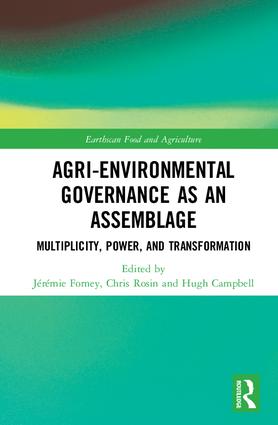Rethinking Control: Complexity in Agri-environmental Governance Research
DOI:
https://doi.org/10.5304/jafscd.2018.083.015
Keywords:
Governance, Assemblage, Social Change, ParticipationAbstract
First paragraph:
Discourse on governance always faces the challenge of describing, and usually simplifying, the many voices who formally and informally participate in controlling, and therefore governing, shared outcomes for community members both locally and globally (Callon, Lascoumes, & Barthe, 2009). Environmental and agricultural governance faces this problem redoubled, as outcomes and governing bodies cross boundaries between species, affecting humans and nonhumans, animals and otherwise (Latour, 2017; Tsing, 2015). Addressing incoherence, difference, and complexity (Law, 2004) is a general research concern among social scientists who wish to avoid subjugating otherwise marginalized participants. By looking to measurements and research methods that arise from studies outside politics and economics, actors that would be hidden or silenced by political economic critiques and metrics may become visible. For engaged governance research, the benefits of this are clear: a more inclusive social science of governing stakeholders. This edited collection brings together diverse international scholarship in agri-food social science research to rethink the framework of agri-environmental governance. The editors frame the selection of essays as efforts to look to the mess of stakeholders, legislators, growers, eaters, food councils, lands, crops, assessments, and so forth as a governing assemblage. By doing this, researchers are able to explore meanings and social experiences that diverge (although do not entirely separate) from neoliberal (e.g., large, corporate) frameworks in ways that complicate the governing underpinnings that are continually at work (re)territorializing the world of agriculture, food, and environment policy and praxis....
Metrics

Downloads
Published
How to Cite
License
Copyright (c) 2018 Matt Comi

This work is licensed under a Creative Commons Attribution 4.0 International License.
The copyright to all content published in JAFSCD belongs to the author(s). It is licensed as CC BY 4.0. This license determines how you may reprint, copy, distribute, or otherwise share JAFSCD content.












